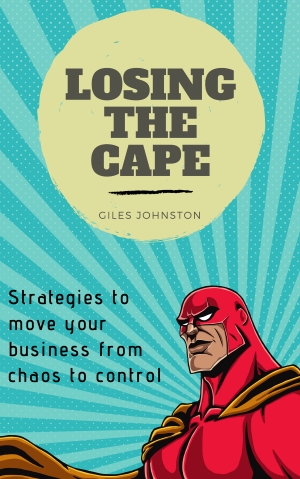A lot of people hate the idea of playing by the rules, do you?
I’m not one of those people. I see the benefit of having clear rules. It takes conflict out of business transactions and makes for smooth running.
Of course, if I don’t agree with the rules I’ll make sure my voice is heard. But until the rules are changed, I’m the kind of guy that will stick with them.
Why am I telling you this?
Three times this week the topic of rules have come up. Many of us have rules in our businesses. Some are written down (in formal policies) and some aren’t (etched in the memories of those that feel they are important).
Those businesses that have their rules written down usually find that that minor issues, grumbles and niggles start to ebb away. They can start to focus on what is important, rather than the issues that grind you down over time.
Create a rulebook
If you don’t already have a rule book, why not create one?
You don’t have to have a massive planning exercise to do this. Start by writing down a few rules and practices you want to operate by. Add to it over time. As the content expands, look at organising it to make it easy to reference.
That’s it. It doesn’t need to be long but it does need to get out of your heads. You’ll most likely find that this approach complements your existing policies and procedures. Look at this approach as filling in the gaps between your health and safety manual, your quality manual and standard business policies.
Losing the Cape
The topic of rules comes up in my working life frequently. A few years ago I was helping a business that had lots of small conflicts. Nothing major. Not enough to cause a showstopper but enough to tie up management with minor issues.
We wrote a handbook to cover the points that I referred to above; it worked like a charm despite the initial puzzled expressions on the staff’s faces as to why we needed a rule book. After a couple of weeks, they all understood the benefits of agreed rules. It works for a board game, it works for business too.
As the next few months passed I experienced different situations, but ones that required a staff member to swoop into fix the situation, I was inspired to write Losing the Cape.
The intention of the book was to help us look at the systems and processes we have in our organisations, and find ways to build those rather than rely on a couple people in the business who can bail us out when it all goes wrong. Writing a rule book is one such strategy.
If this rule book example rings a bell with you then you will find Losing the Cape a useful reference for your ongoing quest for business performance without blood, sweat and tears!
You can pick up a copy on Amazon here.
